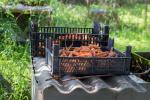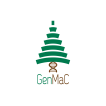AGROCOM Operational Group: Manufacturing of AGROCOMPOSITES through waste recovery applying Circular Bioeconomy
- Type Operational group
- Status In progress
- Execution 2022 -2024
- Assigned Budget 285.912,81 €
- Scope Autonómico
- Autonomous community Andalucía
- Main source of financing CAP 2023-2027
The expected results are:
- Identification, quantification, and characterization of packaging and bioconstruction materials and products that can be substituted by the agrocomposites manufactured in the project.
- Identification and characterization of bioactive coating materials from agrocomposites manufactured in the project applicable to the biomedical sector.
- Manufacturing of agrocomposites, a mixture of by-products/waste of agro-industrial origin (sugar mill) and recycled or pure polymer matrices.
- Manufacturing of prototypes for the packaging sector using agrocomposites.
- Manufacturing prototypes for the bioconstruction sector, acoustic/hydrophobic insulation panels, and flooring.
- Manufacturing of scaffold and coating prototypes as bone fillers for tissue engineering and bone regeneration.
Azucarera's competitive advantages include: - Utilization and recovery of its byproducts/waste for industrial sectors with high consumption of petroleum-based plastics. - Diversification of business lines through recycling. - Circular economy scenarios, complying with carbon footprint regulations. - Generation of specific employment. - Market share positioning.
The main activities to be carried out within the project will be the following:
- PHASE 1. ANALYSIS OF INPUT ELEMENTS: In this task, the current requirements, materials and designs will be analyzed, as well as the products and manufacturing processes by injection molding, extrusion, thermoforming or, occasionally, 3D printing, to identify the necessary requirements that the materials that are intended to be selected as additives in the final composition of the ACs must have.
- PHASE 2. SELECTION OF SUCOR AS ADDITIVES/REINFORCEMENT AND POLYMER MATRICES. This task will select additives with the potential to form ACs that could successfully replace PMs used to manufacture capsules and closures by injection molding, extrusion, or 3D printing.
- PHASE 3. ADJUSTMENT OF ADDITIVES TO MAKE THEM COMPATIBLE WITH THE POLYMER MATRIX. In this phase, the chemical and physical processes that the additives must undergo will be studied so that they can be properly integrated into the PM, so that they can be manufactured correctly, and so that the final product meets the specifications required in the manufacturing process of the closures or capsules, with the bioactive coatings and the BACs.
- PHASE 4. MANUFACTURING AND CHARACTERIZING THE BACS AND COATINGS. In this task, the sugars selected in the previous task as capable of forming suitable mixtures with conventional materials typically used in the manufacture of closures and capsules are manufactured and characterized, selecting only those whose characteristics make them viable options. This task involves performing physical-chemical characterization and evaluating the mechanical, thermo-mechanical, and other properties required by the products in service. Similarly, the BACs selected as viable according to the previous task are manufactured for in-vitro testing.
- PHASE 5. PROTOTYPING BY INJECTION, EXTRUSION, 3D PRINTING, AND PRODUCT VALIDATION. Finally, this task involves manufacturing and validating prototypes of successful solutions tested in the previous phases. To this end, small-volume molds will be manufactured for testing on an injection molding machine, extruder, or 3D printer.
This innovative project aims to address the need to generate value from recycled materials and agro-industrial waste by mixing them appropriately to convert them into value-added materials that are perfectly suitable for use in traditional sectors that use these raw materials in their injection, extrusion, and thermoforming processes, or, occasionally, in emerging ICT sectors such as 3D printing or injection or compression molding.
This restarts a secondary market economy, extending the natural production cycles of raw materials at the end of their useful life. This scenario is complemented by a series of collaborating professionals and entities, Centralized Services, and Divisions within the UCA itself, which guarantee all the methods required for the project.
Based on the background presented, the objective is to study the technical feasibility of solutions capable of mixing different fractions of polymeric materials derived from non-renewable sources (PE, PP, etc.), and other sugars, from the processing of sugar beet and cork, and apply them in the packaging industry for specific products (capsules, closures or stoppers) and in the biomedical industry.
- Name of coordinator/entity: University of Cádiz . Dr. Miguel Suffo Pino.
- Postal address: ESI. University of Cadiz Avenue, 10, 11519 Puerto Real, Cadiz
- Coordinator/entity email: miguel.suffo@uca.es
- Telephone: 9560163412
- Dr. Miguel Suffo Pino
- TORRENT INNOVA S.L. (e.jimenez@torrentclosures.com)
- AB AZUCARERA IBÉRICA S.L.U.
- Dr. Miguel Suffo Pino





